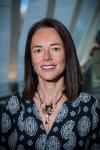Professor Nan Shen

Shanghai Institute of Rheumatology, Ren Ji Hospital Shanghai Jiao Tong University, School of Medicine | China
Dr Nan Shen is a Professor of Medicine and Director of Shanghai Institute of Rheumatology, Ren Ji Hospital Shanghai Jiao Tong University, School of Medicine, as well as a Principal Investigator, head of Lab of Molecular Rheumatology at Health Science Institute, Shanghai Institutes for Biological Sciences, Chinese Academy of Sciences (China). He also holds an appointment as Adjunct Professor at the Center for Autoimmune Genomics and Etiology (CAGE), Cincinnati Children’s Hospital Medical Center, University of Cincinnati (USA). Dr Shen received his medical degree from Shanghai Second Medical University and PhD from the University of Amsterdam (Netherlands). His research mainly focusses on the molecular dissection of the disease pathways in systemic autoimmune diseases using a functional genomics approach and the development of novel biomarkers and therapeutic targets in the management of systemic lupus erythematosus. The current major ongoing research projects include functional dissection of human lupus positional candidate genes; molecular mechanism of type I interferon pathway activation in lupus; role of the IFN-α targeted gene in lupus autoimmunity; MicroRNA and Lupus autoimmunity and development of novel biomarkers for human lupus. He has published over 90 papers in peer-reviewed journals and has also been invited to deliver presentation at many high-profile international conferences. His research contributions have been recognised with several prestigious awards including Silver Snake Award for distinguished physician from the Chinese Government; Science and Technology Progress Award from the Ministry of Science and Technology of China and ACR Rheumatology Research Foundation Edmund L. Dubois, MD, Memorial Lectureship.
He is currently serving as a member of APLAR scientific committee; Associate Editors for Arthritis & Rheumatology, Arthritis Research & Therapy and International Journal of Rheumatic Diseases; Editorial Board member of Annals of Rheumatic Diseases Clinical Immunology Scientific Report, and Faculty member of Faculty of 1000 Prime.

